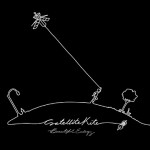A few months ago my friend Cat was after some new music to listen to and asked me to blog about some of my recent discoveries. I don’t feel I’ve made a huge number recently, but it occurred to me that there’s loads of music I listen to that others might not have come across yet. So here’s a few albums and artists for your perusal, and if you have any on a similar theme you’d like to recommend, please do so in the comments.
Red Mountain Music

Back in 2008 Dan Hames introduced the reworked hymn “Hark the voice of love and mercy” to the students at UCCF’s Forum conference. I subsequently taught it to Bristol CU, where I imagine it’s long since been forgotten. It’s just one example of some wonderful takes on old hymns that this church in Alaska has been responsible for. Stand out tracks for me include:
- “Hark the voice of love and mercy” (linked above). I replace the line “ceremonial law” with “law that went before”.
- “There is a fountain filled with blood“. This new tune to an incredible hymn fits the words so much better than every hymn tune I’ve sung it to – it’s gentle, uplifting and poignant.
- Everything on their Christmas album “Silent Night”, but particularly the last three tracks “Let All Mortal Flesh Keep Silent“, “O Come, O Come Emmanuel“, and “Come Thou Long Expected Jesus“. These all keep the original tunes but in new arrangements. “Come Thou Long Expected Jesus” is particularly good – the driving drums accompany the lyrics brilliantly as they reach a climax in the final line: “Raise us to Thy glorious throne!”
Find Red Mountain Music on Bandcamp.
Page CXVI
 One of the best projects bringing out modern takes on hymns, Page CXVI take their name from the page of C. S. Lewis’ The Magician’s Nephew where Aslan sings Narnia into existence. Their aim is different to Red Mountain Music; they’ve (broadly) kept the tunes, but re-imagined them as indie rock songs. They’ve done an excellent job. These arrangements may or may not work in a congregational setting, but they are certainly more listenable to and more original than a lot of recorded hymns and Christian songs. If you’re bored of Christian albums that sound like bad examples of soft rock and pop music from last decade, treat yourself to these guys. Favourite tracks would be too many to mention, and I’ve not even managed to listen to their latest three releases yet, but get their first album (originally titled “Hymns”), and if the final track “Joy” doesn’t move you, then I’ll be very surprised.
One of the best projects bringing out modern takes on hymns, Page CXVI take their name from the page of C. S. Lewis’ The Magician’s Nephew where Aslan sings Narnia into existence. Their aim is different to Red Mountain Music; they’ve (broadly) kept the tunes, but re-imagined them as indie rock songs. They’ve done an excellent job. These arrangements may or may not work in a congregational setting, but they are certainly more listenable to and more original than a lot of recorded hymns and Christian songs. If you’re bored of Christian albums that sound like bad examples of soft rock and pop music from last decade, treat yourself to these guys. Favourite tracks would be too many to mention, and I’ve not even managed to listen to their latest three releases yet, but get their first album (originally titled “Hymns”), and if the final track “Joy” doesn’t move you, then I’ll be very surprised.
City Hymns
 The composer of “There is a fountain filled with blood” (above) released this album on his own, and it’s brilliant. “Come every soul by sin oppressed” is glorious, both lyrically and musically. As expected of the composer, this version of “There is a fountain” is excellent (and free to download). Quite a few of these would probably work congregationally, but the arrangements on the album are good to listen to (acoustic guitar-led with kit, bass, electric guitar and various keyboard and string instruments). “Out of the depths” has a drum-machine/EP-led accompaniment, which works surprisingly well for a psalm setting!
The composer of “There is a fountain filled with blood” (above) released this album on his own, and it’s brilliant. “Come every soul by sin oppressed” is glorious, both lyrically and musically. As expected of the composer, this version of “There is a fountain” is excellent (and free to download). Quite a few of these would probably work congregationally, but the arrangements on the album are good to listen to (acoustic guitar-led with kit, bass, electric guitar and various keyboard and string instruments). “Out of the depths” has a drum-machine/EP-led accompaniment, which works surprisingly well for a psalm setting!
Listen to City Hymns on Bandcamp.
Beautiful Eulogy
 And now for something completely different. I don’t listen to much hip-hop, but when I do, I listen to Beautiful Eulogy. They’ve got a real lyrical flair, some great melodies and hooks, and the sung vocals are top-notch and varied. The accompaniments range from clicks and blips to pads and piano. You can download their first album “Satellite Kite” from Noisetrade free of charge. I’m not so sold on their follow-up album, but maybe I’ll get into it. I just keep coming back to their first one though.
And now for something completely different. I don’t listen to much hip-hop, but when I do, I listen to Beautiful Eulogy. They’ve got a real lyrical flair, some great melodies and hooks, and the sung vocals are top-notch and varied. The accompaniments range from clicks and blips to pads and piano. You can download their first album “Satellite Kite” from Noisetrade free of charge. I’m not so sold on their follow-up album, but maybe I’ll get into it. I just keep coming back to their first one though.
More to follow next week…